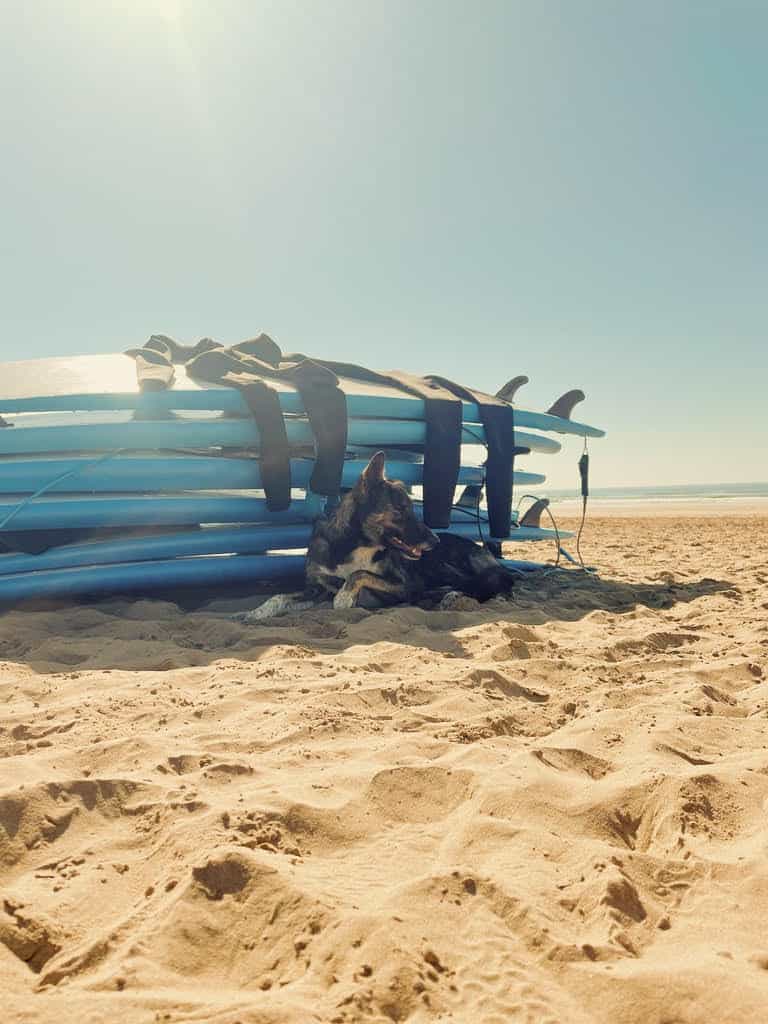Image Credit – Philippe Murray-Pietsch
Over recent years, France has introduced a number of sustainable development strategies and coherent policies that aim to promote a more circular economy. Chiefly, The 2020 Anti-Waste Law, also called AGEC Law, (translates to Loi relative à la lute contre le gaspillage et a l’économie circulaire) lays out a variety of measures to increase recycling and reduce waste, as well as to support the development of a more sustainable economy, which include:
· Phasing out single-use plastics
· Increasing the recycling rate for municipal waste to 65% by 2025
· Implementing a deposit-return system for certain types of packaging
· Promoting the use of more sustainable materials
· Encouraging the development of a market for recycled materials
· Investing in research and development to support the transition to a circular economy1
France has been at the forefront of efforts to combat food waste, which is estimated to account for a third of all food produced globally by the UN’s Food and Agriculture Organisation.2 In 2013, the country established a National Pact against Food Waste and in 2016 passed legislation requiring supermarkets and grocery stores to donate unsold food to food banks or charities.3 Further, restaurants above a certain size are mandated to recycle leftover food and must provide “doggy bags” to customers upon request.
A study by FoodTank found that France’s food waste law was not a complete “ban” on food waste at the retail level. Rather, the law simply required large food waste generators to follow the hierarchy of prevention, recovery, and recycling. Ultimately, the law primarily promotes responsible corporate behaviour and formalises the social expectation of donating food.4
Nonetheless, since implementation of this law, food banks and charities have benefited greatly. The percentage of supermarkets donating unsold products increased from 66% in 2016 to over 90% by 2018,5 and France topped the ranking in the 2017 Food Sustainability Index for its ambitious efforts.6 Further, later in the same year, Italy followed suit and passed a law aimed at combating food waste.7
In 2022, France extended the 2020 Anti-Waste Law to include non-food items by prohibiting the destruction and disposal of non-food products.8 Reports from Prime minister Édouard Philippe’s office indicate that over EUR650m worth of new consumer products are destroyed or disposed of in France each year, with the most destruction happening in the hygiene, beauty, kitchenware, and apparel sectors.9
The law covers a variety of unsold goods, including but not limited to:
- Textiles, clothes, and shoes
- Cosmetics
- Books and school equipment
- Electronic products
- Food preservation and cooking equipment
Retailers and clothing brands will be prohibited from destroying or disposing of unsold and returned items, and will have to reuse, recycle, or donate their products instead. The law allows a fine of up to 15,000 euros for violating the measures, for example through illegally dumping waste.10
This legislation aims to prevent waste, create more efficient production methods, conserve resources, encourage people to use products for longer, and make goods easier to repair and reuse; including incentives for manufacturers to design products in a way that makes them more easily recyclable.11
France is setting a strong example for other countries in its promotion of a more circular economy and reducing waste. The 2020 Anti-Waste Law is a comprehensive approach that addresses multiple aspects of waste reduction, and has already proven to be successful in increasing recycling rates, reducing food waste and promoting sustainable materials. The UK and other countries would benefit from taking inspiration from France’s efforts and implementing similar measures to reduce waste and promote a more sustainable future.
References
1. Ministry for Ecological and Solidary Transition, April 2018, Circular Economy roadmap of France: 50 measures for a 100% circular economy. Available at https://circulareconomy.europa.eu/platform/sites/default/files/frec_anglais.pdf [accessed 01/20/23]
2. Food and Agriculture Organisation, 2022. Food Wastage Footprint: Impacts on natural resources. Available at https://www.fao.org/news/story/en/item/196402/icode/ [accessed 20/01/23]
3. Zero Waste Europe, November 2020. France’s Law for Fighting Food Waste. Available at https://zerowasteeurope.eu/wp-content/uploads/2020/11/zwe_11_2020_factsheet_france_en.pdf [accessed 20/01/23]
4. FoodTank, 19 June 2019. Opinion: France’s Ban on Food Waste Three Years Later. Available at https://foodtank.com/news/2019/06/opinion-frances-ban-on-food-waste-three-years-later/ [accessed 20/01/23]
5. Carbon Lyfe, 27 June 2022. France: Leader in Food Sustainability. Available at https://www.carbonlyfe.com/blog/france-leader-in-food-sustainability [accessed 20/01/23]
6. Economist Impact, 2017. Food Sustainability Index 2017: France continues to set the pace. Available at https://impact.economist.com/projects/foodsustainability/blogs/1512-2/ [accessed 20/01/23]
7. Economist Impact, 2017. Food Sustainability Index 2017: France continues to set the pace.
8. Library of Congress, 2020. France: New Anti-Waste Law Adopted. Available at https://www.loc.gov/item/global-legal-monitor/2020-03-20/france-new-anti-waste-law-adopted/ [accessed 20/01/23]
9. The Guardian, 30 January 2020. Landmark French Law will stop unsold goods being thrown away. Available at https://www.theguardian.com/world/2020/jan/30/france-passes-landmark-law-to-stop-unsold-goods-being-thrown-away [accessed 20/01/23]
10. Library of Congress, 2020. France: New Anti-Waste Law Adopted.
11. Anti-Waste Law for a Circular Economy, January 2020. The Anti-Waste Law in the Daily Lives of the French People. What Does That Mean in Practice? Available at https://circulareconomy.europa.eu/platform/sites/default/files/anti-waste_law_in_the_daily_lives_of_french_people.pdf [accessed 20/01/23]

20/01/2023




